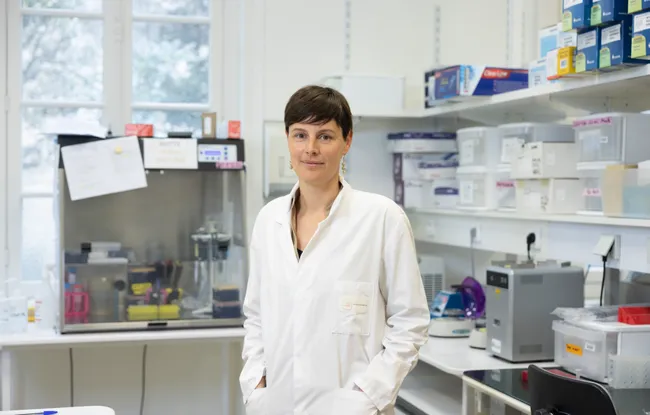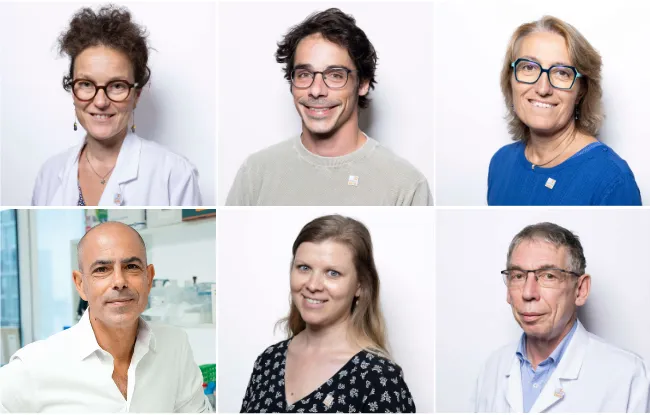- Home >
- Institut Curie News >
- Congratulations to Dr. Leïla Perié, recipient of an ERC Proof of Concept Grant
On Monday, 14 July 2025, Dr. Leïla Perié, CNRS Research Director and team leader at Institut Curie, was awarded an ERC Proof of Concept Grant. This €150,000 grant supports her project VisioWell, the first accessible ex-vivo single-cell live-cell imaging device designed to analyse the dynamics of non-adherent cells — cells that, unlike tissue cells, do not attach to each other or to a surface. This project opens up new perspectives for translational research and the screening of new therapeutic molecules.
The European Research Council (ERC) Proof of Concept Grant helps ERC grantees bridge the gap between the results of their pioneering research and the early phases of its commercialisation or societal application. In 2025, 150 projects were selected for a total of €22.5 million in funding, with each grant worth €150,000.
Among them is VisioWell — a high-throughput imaging device for non-adherent cells — led by Dr. Leïla Perié, CNRS Research Director and leader of the Quantitative Immuno-Haematology team (CNRS UMR168 / Sorbonne University). The project is developed within Leïla Perié’s team by Dr. Alessandro Donada1 and Morgane Burq2, in collaboration with Dr. Hervé Isambert3 and Tiziana Tossi4 for image analysis.
Its aim is to overcome a major technological barrier: enabling real-time, high-throughput observation of the behaviour of cells that move freely in a liquid, such as blood cells, immune cells or certain circulating cancer cells. Unlike tissue cells, these cells do not attach to each other or to a surface — they are known as non-adherent cells.
Today, no ready-to-use solution exists for this type of imaging. The approaches available remain complex to implement, require advanced expertise in microfabrication and image analysis, and are mostly limited to specialised teams.
By making this technology simpler and more accessible, VisioWell aims to fill this gap and provide researchers with a tool to monitor the division and death of these cells one by one — an essential lever to better understand how the immune system works, how tissues regenerate, or to assess the effectiveness of new treatments.
The device will combine simplified microfabrication and artificial intelligence to deliver an end-to-end solution usable without specific technical skills. Multiple applications of interest are being explored and studied.
Through academic and industrial partnerships, VisioWell aims to be widely deployed to accelerate the adoption of this technology and open up new opportunities for translational research and therapeutic development.
[1] Postdoctoral researcher in the Quantitative Immuno-Haematology team (CNRS UMR168 / Sorbonne University)
[2] Research engineer in the Quantitative Immuno-Haematology team (CNRS UMR168 / Sorbonne University)
[3] CNRS Research Director and head of the Computational Biology team (CNRS UMR168 / Sorbonne University)
[4] PhD student in the Computational Biology team (CNRS UMR168 / Sorbonne University)
© Institut Curie / BELONCLE Frank



